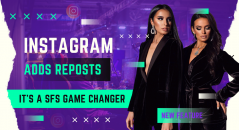When producing adult videos, bringing your creative vision to life often involves combining the right elements — including music. However, using music in adult content can raise complex legal and ethical issues. This article explores the legal frameworks governing music use and offers practical insights for content creators navigating these challenges.
Copyright Infringement
The most immediate risk when using music in adult content is copyright infringement. Copyright law grants songwriters, composers, and record labels exclusive rights to control how their works are used, reproduced, and distributed. Using any portion of a song — even a few seconds — without permission constitutes infringement unless an exception applies.
Copyright holders actively monitor online content for unauthorized use. In the adult entertainment industry, infringement can result in DMCA takedown notices, lawsuits, or demands for licensing fees. Because adult content is often monetized, copyright holders may pursue cases more aggressively, arguing that such use damages their work’s value and reputation.
Even background music from a TV or radio broadcast in a scene can pose risks. Enforcement organizations employ digital fingerprinting technology to detect unauthorized music use across platforms. Statutory damages can range up to $30,000 per infringement, and up to $150,000 if deemed willful — plus attorneys’ fees.
To stay compliant, adult content creators must obtain the appropriate licenses, such as:
- Synchronization licenses — for pairing music with video.
- Performance licenses — for music used in livestreams or broadcasts.
However, adult creators often face additional challenges because many rights holders refuse to license their music for adult use, citing reputational concerns. As a result, mainstream creators may occasionally get away with borderline uses that adult creators cannot.
Why You Can Use Commercial Music on Instagram and TikTok — But Not on OnlyFans or Personal Sites
Many creators wonder why they can freely use popular songs in Instagram Reels, TikToks, or YouTube Shorts, yet face copyright claims if they use the same music in videos uploaded to OnlyFans, ManyVids, or their own websites. The difference lies in who holds the license.
Major social media platforms like Instagram, TikTok, and YouTube have blanket licensing agreements with music publishers and performing rights organizations (PROs). These agreements allow users to include certain commercial tracks in their posts or short-form videos within that platform’s ecosystem. The license covers the performance and synchronization of those songs only on the licensed platform, under specific terms negotiated by the platform itself.
However, these rights do not extend to:
- Content uploaded to other websites or platforms (including adult content sites).
- Paid or subscription-based content such as that on OnlyFans or Fansly.
- Any use that generates direct revenue outside the licensed platform.
When you use a commercial song on Instagram, you are effectively “borrowing” the platform’s license. Once that content is uploaded elsewhere — even if it’s your own website — that protection disappears. The responsibility for obtaining music rights then shifts entirely to you, the creator or producer.
Adult platforms rarely have these blanket licenses in place, partly due to the high costs and partly because many music rights holders refuse to associate their catalogs with explicit content. As a result, adult creators must secure their own licenses or use royalty-free or original compositions.
The “Fair Use” Defense
Fair use is a narrow exception that allows limited use of copyrighted works without permission under specific circumstances. Courts consider four key factors:
1: Purpose and Character of the Use
Transformative uses — those adding new meaning, commentary, or parody — are more likely to qualify. Merely adding background music to enhance a scene rarely qualifies, particularly in commercial adult content.
2: Nature of the Copyrighted Work
Because songs are highly creative, this factor almost always favors the copyright holder.
3: Amount and Substantiality
Using even a short but recognizable segment (such as a chorus or riff) weighs against fair use, especially if it’s the “heart” of the work.
4: Effect on the Market
If your use diminishes the song’s value or competes with its market, this heavily undermines a fair use defense.
Fair use is notoriously difficult to apply successfully in commercial entertainment, and courts have rarely ruled in favor of adult creators making such claims. Consult an attorney before relying on this defense — it is risky and uncertain.
De Minimis Use
Another limited exception is de minimis use, which applies when the use of copyrighted material is so trivial that it doesn’t constitute infringement. In music, this might involve a few seconds of barely audible background sound.
However, courts have been skeptical of de minimis defenses in commercial contexts. If music is intentionally included to set a mood — as is common in adult content — it’s unlikely to qualify as trivial. A passing radio song in the background of a street scene might qualify; a deliberately added track to accompany a scene almost certainly will not.
Music Publishers and Performing Rights Organizations (PROs)
Music publishers control how songs are licensed for use in both live and recorded settings. They often partner with Performing Rights Organizations (PROs) — such as ASCAP, BMI, and SESAC — which collect licensing fees and distribute royalties to artists.
PROs monitor both traditional and digital platforms to detect unlicensed use and issue takedown notices or fines. Adult creators seeking to use copyrighted music must typically engage with:
- The music publisher for synchronization licenses (recorded videos).
- The PRO for performance licenses (livestreams or live events).
Some PROs offer blanket licenses covering broad catalogs, but these are rarely available for adult content producers due to branding and moral concerns. This makes it even more important for creators in the adult industry to explore alternative music sources.
Practical Tips for Adult Content Creators
Avoiding copyright issues in adult productions requires strategic planning:
1: Use Only Licensed Music
Secure the necessary licenses from publishers or PROs before including any song. Alternatively, negotiate directly with independent artists open to adult content partnerships. You can get music on various websites that let you use it in your content. Just make sure and read the fine print, so that you know if you are allowed to use the clip your are licensing for commercial productions.
2: Consider Royalty-Free or Custom Music
Hiring a composer or using royalty-free tracks is often the safest and most cost-effective route. Ensure that any commissioned music includes a work-for-hire or copyright assignment agreement. I love elements.envato.com. But honestly there are a ton of these kind of sites out there. Just find one that’s right for you.
3: Consider AI Audio
Like a specific song? You can have AI create a song like it. Here’s a prompt I use for ChatGPT. When it generates a prompt, I go to elevenlabs.io (select ElevenMusic from the menu) and create a few variations until I find one I like. There are a ton of AI music generation apps. That’s just one that I use. You can use any you like. Here’s my ChatGPT prompt I use.
I want to create an AI song that is POP (genre) and sexy like Doja Cat’s Pain the Town Red or Tate McRae’s Greedy, with suggestive lyrics, smooth rhythms, and a confident baddie energy that contributes to its seductive appeal. Can you help me write the prompt for AI music generation?
Want to hear how my AI song turned out? I use it in this IG video.
Video features: Anya Kahra
Copyright law is complex, and the adult industry adds extra layers of risk. A legal consultation can clarify your exposure and defenses. Subscription sites and streaming platforms often prohibit unlicensed music. Violations can lead to content removal or account termination.
Using music in adult content presents unique legal and ethical challenges. The risks of copyright infringement are substantial, and defenses like fair use or de minimis use offer limited protection. The fact that social media platforms can license popular music for their users doesn’t mean individual creators can do the same on independent or adult platforms.
The safest strategies remain to obtain proper licenses, commission original music, or use royalty-free tracks from reputable libraries. By understanding the legal landscape and proactively securing music rights, adult content creators can protect themselves while producing high-quality, professional content.
** Keep in mind, I am not a lawyer. If you ever have any legal questions, please speak to a lawyer to get clarification.




